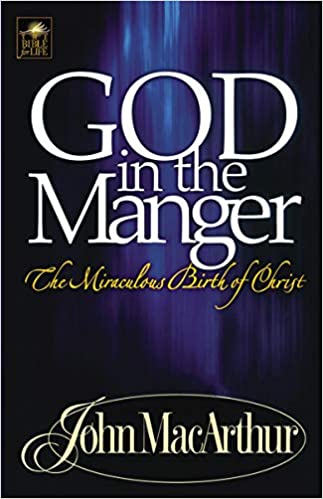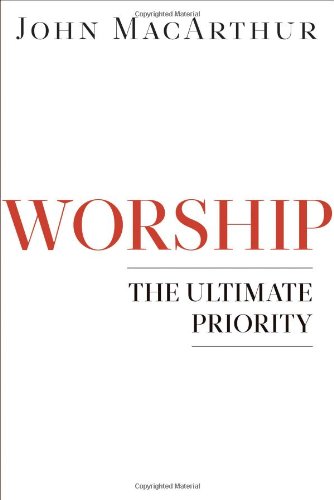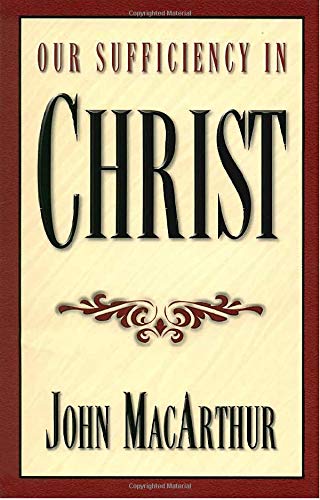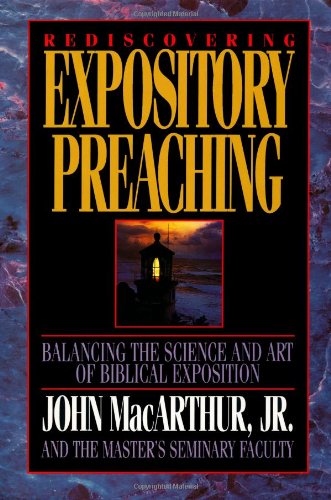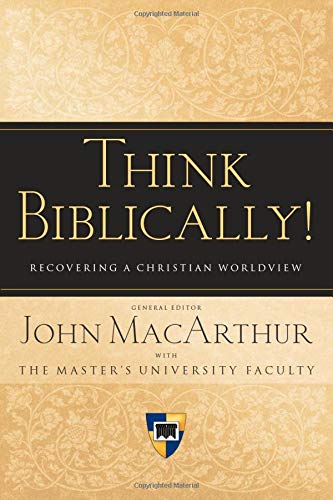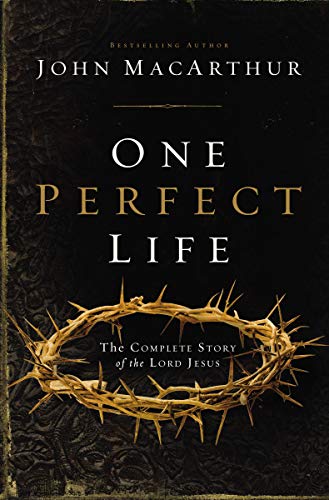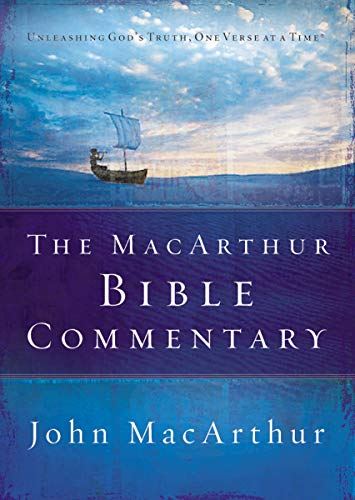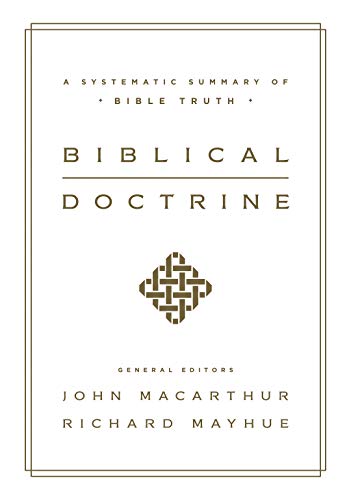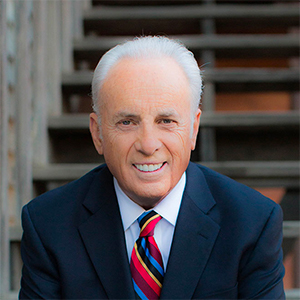
Quotes by John MacArthur
Genuine love is not merely a feeling or an involuntary attraction. It involves a willful choice, and that is why (the word is often) in the form of an imperative. Far from being something we “fall into” by happenstance, authentic love involves a deliberate, voluntary commitment to sacrifice whatever we can for the good of the person we love.
[Love] is not a feeling but a determined act of will, which always results in determined acts of self giving. Love is the willing, joyful desire to put the welfare of others above our own.
[Pastors] are initiated by the Holy Spirit, confirmed by prayer, and qualified through the consistent testimony of a pure life in the eyes of all.
Mysticism is a system of belief that attempts to perceive spiritual reality apart from objective, verifiable facts. It seeks truth through feelings, intuition, and other internal senses. Objective data is usually discounted, so mysticism derives its authority from within. Spontaneous feeling becomes more significant than objective fact. Intuition outweighs reason. An internal awareness supersedes external reality.
Mysticism is the idea that direct knowledge of God or ultimate reality is achieved through personal, subjective intuition or experience apart from, or even contrary to historical fact or objective divine revelation.
The Quest for Something More from Our Sufficiency in Christ, 1991, Crossway Books, a division of Good News Publishers, Wheaton Illinois 60187, www.crosswaybooks.org. p. 181.
By God’s own sovereign decree, presidents, kings, prime ministers, governors, mayors, police, and all other governmental authorities stand in His place for the preservation of society. To resist government is therefore to resist God. To refuse to pay taxes is to disobey God’s command. By God’s own declaration, to pay taxes to Caesar honors God [Rom. 13:15; 1 Ti. 2:1-3; 1 Pet. 2:13-15].
Jesus…declared the divinely ordained obligation of citizens to pay taxes to whatever government is over them. Paying taxes is a legitimate duty of every person, but is specially binding on believers because they are specially bound to God’s Word. Jesus made no qualifying exemptions or exceptions, even under rulers such as the blasphemous, pagan, idolatrous government that in a few days would nail Him to the cross. The government that executed the Son of God was to be paid taxes by God’s people. The state has the divine right to assess taxes that are within its sphere of responsibility and its citizens have the divine obligation to pay them.
Sexual expression within a marriage is not an option or an extra. It is certainly not, as it has sometimes been considered, a necessary evil in which spiritual Christians engage only to procreate children. It is far more than a physical act. God created it to be the expression an experience of love on the deepest human level and to be a beautiful and powerful bond between husband and wife.
Unless it is by mutual consent, for a specific prayer need and for a brief period of time, sexual abstinence can become a tool of Satan (1 Cor. 7:5). It is never to be used as pretense for spiritual superiority or as a means of intimidating or manipulating one’s spouse. Physical love is to be a normal and regular experience shared by both marriage partners alike, as a gift from God.
Older women should teach younger women the skills and disciplines needed to have a successful home and marriage. Experienced wives and mothers will find their greatest avenue of ministry in teaching younger wives what they need to know to be effective wives, mothers, and homemakers.
God is not a cosmic killjoy. I know some people who believe He is. They think God runs around saying, “There’s one having fun; get him!” They believe God wants to rain on everybody’s parade. But that isn’t so. God made you. He knows how you operate best. And He knows what makes you happy. The happiness He gives doesn’t stop when the party’s over. It lasts because it comes from deep within.
It is impossible for a lesser creature to understand a more advanced one. How can anything understand something more complex and advanced than itself? For a flea to understand a dog it would have to be at least as advanced as a dog. For a dog to understand a man it would have to be at least as advanced as a man. How much greater distance is there between Creator and creature. Man can imagine what God might be like, and people have plenty of ideas about Him. Almost everyone has an opinion as to what God is or is not like, or as to whether He even exists. But man’s opinions are irrelevant, because they can never be more than speculations. By his own resources the creature cannot possibly comprehend his Creator.
The conscience is a built-in warning system that signals us when something we have done is wrong. The conscience is to our souls what pain sensors are to our bodies: it inflicts distress, in the form of guilt, whenever we violate what our hearts tell us is right.
Suppressing the conscience or deliberately violating it is deadly to our spiritual well-being. To disobey the conscience is itself a sin (Romans 14:14, 23; James 4:17), even if the conscience is ignorant or is misinformed. And to suppress the conscience is tantamount to searing it with a hot iron (1 Timothy 4:2), leaving it insensitive and thereby dangerously removing a vital defense against temptation (1 Corinthians 8:10).
Our sensitivity to personal guilt is a fundamental trait of our humanness that distinguishes us from animals. To try to suppress the conscience is in effect to diminish one’s own humanity.
As a Christian, you have the capacity to walk before God with a clear conscience:
1. Confess and forsake known sin. Examine your guilt feelings in light of Scripture. Deal with the sin God’s Word reveals (Pr. 28:13; 1 Jn. 1:9; Jas. 5:16; Psm. 32:5).
2. Ask forgiveness and be reconciled to anyone you have wronged (Mt. 5:23-24; 6:14-15).
3. Make restitution to those you’ve wronged (Num. 5:6-7; Lk. 19:8; Phile. 19).
4. Don’t procrastinate in clearing your wounded conscience. Some people put off dealing with their guilt, thinking their conscience will clear itself in time. It won’t. Procrastination allows the guilt feelings to fester. That in turn generates depression, anxiety, and other emotional problems (Ac. 24:16).
5. Educate your conscience. A weak, easily grieved conscience results from a lack of spiritual knowledge (1 Cor. 8:7).
Adapted from: Keeping a Pure Conscience, The article originally appeared (www.gty.org/Resources/Articles/23) at www.gty.org. © 1969-2008. Grace to You. All rights reserved. Used by permission.
If your conscience is too easily wounded, don’t violate it. To violate even a weak conscience is to train yourself to override conviction, and that will lead to overriding true conviction about real sin. Moreover, violating the conscience is a sin in itself (Romans 14:23), bringing legitimate guilt for a real offense against God. So, respond to your conscience, even if it’s weak, and then continue to inform your conscience with God’s Word so it can begin to function with reliable data.
Keeping a Pure Conscience, The article originally appeared (www.gty.org/Resources/Articles/23) at www.gty.org. © 1969-2008. Grace to You. All rights reserved. Used by permission.
Drugs, therapy, entertainment – they’re all used to silence a guilty conscience. But for the Christian, the conscience is the key to freedom.
Keeping a Pure Conscience, The article originally appeared (www.gty.org/Resources/Articles/23) at www.gty.org. © 1969-2008. Grace to You. All rights reserved. Used by permission.
The conscience is generally seen by the modern world as a defect that robs people of their self-esteem. Far from being a defect or a disorder, however, your ability to sense your own guilt is a tremendous gift from God. He designed the conscience into the very framework of the human soul. It is the automatic warning system that cries, “Pull up! Pull up!” before you crash and burn.
The Conscience, Revisited, The article originally appeared (www.gty.org/Resources/Articles/35) at www.gty.org. © 1969-2008. Grace to You. All rights reserved. Used by permission.
The conscience entreats you to do what you believe is right and restrains you from doing what you believe is wrong. But don’t equate the conscience with the voice of God or the law of God. It is a human faculty that judges your actions and thoughts by the light of the highest standard you perceive. When you violate your conscience, it condemns you, triggering feelings of shame, anguish, regret, consternation, anxiety, disgrace, and even fear. Conversely, when you follow your conscience, it commends you, bringing joy, serenity, self-respect, well-being, and gladness.
The Conscience, Revisited, The article originally appeared (www.gty.org/Resources/Articles/35) at www.gty.org. © 1969-2008. Grace to You. All rights reserved. Used by permission.
Both the mind and the conscience can become so defiled that they cease making distinctions between what is pure and what is impure (cf. Titus 1:15).
The Conscience, Revisited, The article originally appeared (www.gty.org/Resources/Articles/35) at www.gty.org. © 1969-2008. Grace to You. All rights reserved. Used by permission.
The conscience…is not infallible. Nor is it a source of revelation about right and wrong. Its role is not to teach you moral and ethical ideals, but to hold you accountable to the highest standards of right and wrong you know.
The Conscience, Revisited, The article originally appeared (www.gty.org/Resources/Articles/35) at www.gty.org. © 1969-2008. Grace to You. All rights reserved. Used by permission.
Both tradition and truth inform the conscience, so the standards it holds you to are not necessarily biblical ones (1 Corinthians 8:6-9). The conscience can be needlessly condemning in areas where there is no biblical issue. In fact, it can try to hold you to the very thing the Lord is trying to release you from (Romans 14:14, 20-23)!
The Conscience, Revisited, The article originally appeared (www.gty.org/Resources/Articles/35) at www.gty.org. © 1969-2008. Grace to You. All rights reserved. Used by permission.
Your conscience reacts to the convictions of your mind and therefore can be encouraged and sharpened in accordance with God’s Word. The wise Christian wants to master biblical truth so that the conscience is completely informed and judges right because it is responding to God’s Word. A regular diet of Scripture will strengthen a weak conscience or restrain an overactive one. Conversely, error, human wisdom, and wrong moral influences filling the mind will corrupt or cripple the conscience.
The Conscience, Revisited, The article originally appeared (www.gty.org/Resources/Articles/35) at www.gty.org. © 1969-2008. Grace to You. All rights reserved. Used by permission.
Your conscience is like the nerve endings in your fingertips. Its sensitivity to external stimuli can be damaged by the buildup of calluses or even wounded so badly as to be virtually impervious to any feeling. Paul also wrote of the dangers of a calloused conscience (1 Corinthians 8:10), a wounded conscience (v. 12), and a seared conscience (1 Timothy 4:2).
The Conscience, Revisited, The article originally appeared (www.gty.org/Resources/Articles/35) at www.gty.org. © 1969-2008. Grace to You. All rights reserved. Used by permission.
Take time each day to inform your conscience by reading God’s Word. Never train yourself to ignore your conscience, but respond quickly to its warnings. And then cleanse your conscience through consistent confession as you seek forgiveness from those you’ve sinned against – whether God or others. Those things will strengthen your conscience so that you can enjoy the freedom and blessings of a clear conscience before God.
John MacArthur The Conscience, Revisited, The article originally appeared (www.gty.org/Resources/Articles/35) at www.gty.org. © 1969-2008. Grace to You. All rights reserved. Used by permission.
Everybody who is created comes into the world with a sense of right and wrong. That is the law written in the hearts. In addition to that, God has put the conscience and the conscience is a warning device that sounds off when we violate that law, or affirms us when we obey it. The conscience is not that law; it is merely the warning device.
Cauterizing the Conscience, The article originally appeared (www.gty.org/Resources/Sermons/80-235) at www.gty.org. © 1969-2008. Grace to You. All rights reserved. Used by permission.
Conscience is to the soul what pain is to the body. We would like to avoid pain as much as possible, but at the same time we recognize that pain is a gift from God. If you didn’t have pain, you would destroy yourself. Pain is critical to physical preservation. And so the conscience is critical to spiritual preservation.
Cauterizing the Conscience, The article originally appeared (www.gty.org/Resources/Sermons/80-235) at www.gty.org. © 1969-2008. Grace to You. All rights reserved. Used by permission.
Our society under the prince of the power of the air has two objectives. Objective number one is destroy the moral law so that the conscience is misinformed. Train people against what is innately the law that is in their hearts when they’re born, give them a new morality, not the morality of the Bible, not God’s law. We want people not to think biblically. We want them freed from that so we’ll construct another morality that will pour that into their lives through every means possible. That’s destructive. And then the second thing that society wants to do orchestrated by the enemy of your souls is to tell you that your conscience is a liar. That what’s wrong with you isn’t sin, it’s a lack of…self-esteem. It isn’t that you’re bad; it’s that you’re good and you need to think better of yourself… The guilty conscience isn’t healthy, it shouldn’t be tolerated, switch it off.
John MacArthur Cauterizing the Conscience, The article originally appeared (www.gty.org/Resources/Sermons/80-235) at www.gty.org. © 1969-2008. Grace to You. All rights reserved. Used by permission.
The conscience is at the core of what it means to be human, as opposed to being an animal. What distinguishes human beings and animals is self-consciousness; that is the ability of the soul to reflect upon itself. Humans are the only creatures in the material world who can think about their thoughts, who can contemplate why they think the way they think, who can understand their motives, who can make moral self-evaluations. And that is a God-given gift, the innate ability to sense what is right and wrong,
Cauterizing the Conscience, The article originally appeared (www.gty.org/Resources/Sermons/80-235) at www.gty.org. © 1969-2008. Grace to You. All rights reserved. Used by permission.
It’s essential to understand…that the conscience doesn’t act independently. It can only act upon a belief system. It is not a belief system. The conscience is not the law of God. It is not the voice of God. It is not moral law. It is simply a mechanism.
Cauterizing the Conscience, The article originally appeared (www.gty.org/Resources/Sermons/80-235) at www.gty.org. © 1969-2008. Grace to You. All rights reserved. Used by permission.
Your conscience works off your belief system. [So] the more you know about the Word of God, the more you’re consistently in the Word of God, learning the Word of God, hearing the Word of God, meditating on the Word of God, the more informed your conscience is truly informed.
Cauterizing the Conscience, The article originally appeared (www.gty.org/Resources/Sermons/80-235) at www.gty.org. © 1969-2008. Grace to You. All rights reserved. Used by permission.
[The conscience] either indicts you, accuses you, or it exonerates you and defends you.
Cauterizing the Conscience, The article originally appeared (www.gty.org/Resources/Sermons/80-235) at www.gty.org. © 1969-2008. Grace to You. All rights reserved. Used by permission.
James 1 says, “Lust when it conceives brings forth sin”… If you don’t win the battle on the inside, it will show up on the outside. A pure conscience is more to be sought than a good reputation.
Cauterizing the Conscience, The article originally appeared (www.gty.org/Resources/Sermons/80-235) at www.gty.org. © 1969-2008. Grace to You. All rights reserved. Used by permission.
What happens when a person becomes a believer is that conscience is purified by the Holy Spirit; and, as a Christian, I believe conscience is giving pure information. I believe that the Holy Spirit, in conjunction with your conscience, is going to send pure impulses. That’s why a Christian who sins is going to suffer far more intense guilt than a non-believer who’s got a seared conscience… The Holy Spirit will operate in and through your conscience and make moral judgments on your action.
Paul’s Clear Conscience, The article originally appeared (www.gty.org/Resources/Sermons/1788) at www.gty.org. © 1969-2008. Grace to You. All rights reserved. Used by permission.
Your conscience as a Christian is that tool in connection with the Holy Spirit which makes moral value judgments on your actions. Respond to it, because your conscience will not only make the judgment, it’s not only the judge, your conscience is also the executioner. If you don’t listen to your conscience, you’ll suffer from your conscience. Your conscience will continue to accuse you, and you’ll have a guilty conscience and a guilty complex.
Paul’s Clear Conscience, The article originally appeared (www.gty.org/Resources/Sermons/1788) at www.gty.org. © 1969-2008. Grace to You. All rights reserved. Used by permission.
The root of both psychological and spiritual sickness is preoccupation with self. Ironically, the believer who is consumed with his own problems – even his own spiritual problems – to the exclusion of concern for other believers, suffers from a destructive self-centeredness that not only is the cause of, but is the supreme barrier to the solution of, his own problems. Usually such selfishness isolates him from the other believers, who if they were intimately involved in fellowship with him, would be regularly praying for his spiritual welfare.
In matters in which Scripture is not explicit there is room for difference of opinion.
All Christians are but God’s stewards. Everything we have is on loan from the Lord, entrusted to us for a while to use in serving Him.
The very nature of self-righteousness is to justify self and condemn others. In so doing people play God, because they judge themselves on the basis of their own standards and wisdom. Self-righteousness is the worst of sins because it is unbelief. It trusts in self rather than God. It trusts in self to determine what is right and wrong and to determine who does what is right or wrong. Self-righteousness claims to be both lawgiver and judge, prerogatives that belong only to the Lord.
[With all its benefits] social networking can also be abused. When it consists of nothing more than random babblings and personal monologues, it can become self-centered, unrestrained and narcissistic. When it consumes our lives, it can be addictive and controlling. Used unwisely, it is filled with potential pitfalls and temptations. For those who follow Christ, we are called to submit every area of our lives to His lordship – including how we use social media.
Social Media and Digital Discernment, Pulpit Posts, November 10, 2010. Used by Permission.
Social networking…has the potential to foster shallow relationships and detract from real ones. Instead of enhancing deep friendships, it tends to flatten out and impersonalize the dynamics of human interaction… [It] gives the illusion of knowing everyone, and yet the reality is that oftentimes no one is truly known. It creates an environment where selfish, one-sided relationships seem to flourish, and where communication is largely unidirectional, made up of sound bites instead of deep interaction. Moreover, it often distracts people from existing relationships. Instead of pouring themselves into the real-life friendships they currently have, people now spend hours with pseudo-friends online.
Social Media and Digital Discernment, Pulpit Posts, November 10, 2010. Used by Permission.
As believers, the command of Ephesians 5:15-16 is just as binding upon our modern lives as it was in the non-technological world of the first century. "Therefore be careful how you walk, not as unwise men but as wise, making the most of your time, because the days are evil." Paul’s exhortation has massive implications for how we interact with social media. One day we will stand before Christ to give an account for how we used His resources (including our time and energy). With that in mind, how much of this life can be justifiably devoted to Twitter, Facebook, YouTube and the like? Just a few hours each day, over the course of a lifetime, adds up to years of wasted opportunity.
Social Media and Digital Discernment, Pulpit Posts, November 10, 2010. Used by Permission.
If there is one word that perhaps best describes social media it is this: self-promotion… When so much about social media panders to pride and shameless self-exaltation, believers need to think about their motives before they jump on the bandwagon. If the goal is simply popularity or personal promotion, it’s time to do a heart check. Our celebrity-driven culture craves for notoriety. But Christians are called to be different. We have died to ourselves. Thus, our concern should not be, "How many people can I get to follow me?" but rather, "How can I bear witness to the wonder of following Christ?"
Social Media and Digital Discernment, Pulpit Posts, November 10, 2010. Used by Permission.
Doctrine matters. What you believe about God, the gospel, the nature of man, and every major truth addressed in Scripture filters down to every area of your life. You and I will never rise above our view of God and our understanding of His Word.
The kingdom of God is for the spiritually sick who want to be healed, the spiritually corrupt who want to be cleansed, the spiritually poor who want to be rich, the spiritually hungry who want to be fed, the spiritually dead who want to be made alive. It is for ungodly outcasts who long to become God’s own beloved children.
According to Scripture, a mystery form of the kingdom of God – incorporating all the elements of heaven itself – is the spiritual sphere in which all true Christians live even now. The kingdom of heaven invades and begins to govern the life of every believer in Christ. Spiritually, the Christian becomes a part of heaven with full rights of citizenship here and now in this life.
No Earthly Idea About Heaven taken from The Glory of Heaven by John MacArthur, copyright 1996, Crossway Books, a division of Good News Publishers, Wheaton Illinios,60187, www.crosswaybooks.org, page 60.
If we measure our success as parents solely by what our children become, there is no inviolable guarantee in Scripture that we will experience absolute success on those terms… The true measure of success for Christian parents is the parents’ own character. To the degree that we have followed God’s design for parenting, we have succeeded as parents before God.
Trials have many purposes…many purposes. Trials test the strength of our faith. Trials wean us from earthly things. Trials call us to eternal hope. Trials reveal what and who we really love. Trials teach us to value God’s blessing. Trials enable us to help others who suffer. Trials produce endurance which equips us for greater usefulness, but mostly trials humble us.
The Sufficiency of God’s Grace. The article originally appeared (http://www.gty.org/resources/sermons/80-72/The-Sufficiency-of-Gods-Grace) at www.gty.org. © 1969-2008. Grace to You. All rights reserved. Used by Permission.
We are so often terrified by our predicaments while all the time there’s the scaffold of God’s care beneath us. Our ignorance doesn’t change the certainty but it does destroy the peace, doesn’t it? We need to remember that underneath are the everlasting arms and you don’t know that until your fingers slip and you drop.
The article originally appeared (http://www.gty.org/resources/sermons/47-4/comfort-in-trouble) at www.gty.org. © 1969-2008. Grace to You. All rights reserved. Used by Permission.
Do we have sufficient grace? Or do we not? Is the Word of God so insufficient which is perfect, totally transforming the whole person according to Psalm 19? Is the wisdom from above which confounds all the wisdom of man and calls it foolishness so insufficient? Is the Lord Jesus Christ in whom we are complete, in whom we have all things that pertain to life and godliness and have been made partakers of the divine nature and possessors of all His fullness so insufficient? Is the Holy Spirit who has filled us with all strength in the inner man and all the fullness of God so that we can do exceeding abundantly above all we can ask or think according to His resurrection power so insufficient? Is the package of spiritual resources we have received in salvation which enables us to do all things through the power of our Christ unable to sufficiently give us victory in life? When Paul said in 2 Corinthians 3:5 “our sufficiency is from God,” was he ignorant?
The Sufficiency of God’s Grace. The article originally appeared (www.gty.org/resources/sermons/80-72/The-Sufficiency-of-Gods-Grace) at www.gty.org. © 1969-2008. Grace to You. All rights reserved. Used by Permission.
Frankly, the deepest pain you’ll ever know and the deepest pain I’ll ever know is not physical. It’s not material. It doesn’t have to do with our physical body and it doesn’t have to do with our material or economic or circumstantial life patterns. The greatest pain we will ever know is relational. It is the potential of people to devastate us, to destroy us, to abuse us. And apart from internal personal guilt which has to be the greatest pain but that is personal and internal, the most serious pain we suffer in the world comes from unfulfilled and devastated relationships. No disease is as painful as rejection. No disease is as painful as false accusation. No disease is as painful as misrepresentation, betrayal [and] hatred.
The Sufficiency of God’s Grace. The article originally appeared (www.gty.org/resources/sermons/80-72/The-Sufficiency-of-Gods-Grace) at www.gty.org. © 1969-2008. Grace to You. All rights reserved. Used by Permission.
Physical illness, whatever it is, emotional distress, financial disaster, death, being forsaken and left alone, whatever shatters your confidence in your own abilities, your own strength becomes your extremity and that is God’s opportunity. A progressive weakening of your instinctive self-confidence that leads you all the way to self-despair is exactly where God wants you because at that point the only thing that’s going to hold you together is a radical confidence in God.
Comfort in Trouble. The article originally appeared (http://www.gty.org/resources/sermons/47-4/comfort-in-trouble) at www.gty.org. © 1969-2008. Grace to You. All rights reserved. Used by Permission.
In prayer, human impotence casts itself at the feet of divine omnipotence, thus the duty of prayer is not to modify God’s power but to glorify it. We’re not trying to change God’s plan, we’re just trying to get in line with it.
Comfort in Trouble. The article originally appeared (http://www.gty.org/resources/sermons/47-4/comfort-in-trouble) at www.gty.org. © 1969-2008. Grace to You. All rights reserved. Used by Permission.
Why does God allow bad things, devastating things to happen to His people?
1. Test the validity of their faith. Saving faith is indestructible. Saving faith endures to the end. Saving faith perseveres.
2. Wean them from the world. The Lord brings us to trials in order that we might be weaned away from confidence in worldly things.
3. Call them to heavenly hope. [Trials help] to fill our hearts with anticipation for the glories to come so that we will live in hope.
4. Show us what we really love. Trials will reveal what is most precious to [us]. If bearing the cross and the reproach of Christ is most precious, then [we’ll] suffer the loss of anything for that.
5. Teach us obedience. Trials also allow God to teach us obedience. Through those trials we learn that sin has painful consequences. Trials are God’s chastenings.
6. In order that He might reveal His compassion in our misery. He is the Father of mercies and the God of all comfort.
7. Develop [our]spiritual strength for greater usefulness. The more [we]are tested and refined by trials and trouble, the more useful [we] become.
8. Help others in their trials. God can come to [us] in [our] difficulty and strengthen [us] and then [we] can come to [others] with the strength He’s given to [us].
9. Display His astounding power.
Adapted from: Comfort in Trouble. The article originally appeared (http://www.gty.org/resources/sermons/47-4/comfort-in-trouble) at www.gty.org. © 1969-2008. Grace to You. All rights reserved. Used by Permission.
When godly people, armed with the confidence that God’s
Word is entirely sufficient, prayerfully and skillfully, gently but
firmly come alongside those who are confused, lost, hurting, or
otherwise struggling with some personal or spiritual dilemma,
the Lord is sovereignly disposed to use His Word through such
counsel in ways that please Him. His Word is the one thing
never returns void (Isaiah 55:11).
Counseling the Hard Cases, Edited by Stuart Scott and Health Lambert, B&H Publishing, 2012, p. xi, Used by Permission.
The Law was never intended to be a means of salvation. The Law provides no grace, mercy or forgiveness. It has no power to enable the sinner to be righteousness. Its purpose was to reveal God’s holy, pure standard and drive exposed sinners to the Savior (Gal. 3:24; Heb. 4:12-13). But to those who rely on it for salvation the Law has a ministry of death (2 Cor. 3:7).
By the new covenant, the Spirit gives life and righteousness (Rom. 8:2). The old covenant commands righteousness; the new covenant confers it. The old covenant made people hearers of the truth; the new covenant enables them to be doers of the truth.
Old Testament saints were not saved by keeping the Law, but being broken over their inability to keep it, they came to God as penitents, hungering and thirsting for righteousness and mourning over their sin. God then mercifully and graciously forgive their sins based on what Christ would accomplish in the future by His substitutionary death. Having been saved by grace through faith, the Old Testament saints found the moral law a source of blessing and joy. They could then exult with the psalmist, “O how I love Your law! It is my meditation all the day (Psm. 119:97). The Law then became to them “more desirable than gold, yes, than much fine gold; sweeter also than honey and the drippings of the honeycomb” (Psm. 19:10). It was not their attitude toward the law that saved them; rather, salvation changed their attitude toward the Law, and they repented and in faith sought God’s gracious forgiveness.
[Without the Spirit] the old covenant prescribed what men were to do but could not enable them to do it. It provided a basis for damnation, but not salvation; for condemnation, but not justification; for moral culpability, but not for moral purity.
Inerrancy demands an exegetical process and an expository proclamation. Only the exegetical process preserves God’s Word entirely and exactly as He intended it to be proclaimed. Expository preaching is the result of the exegetical process. Thus, it is the essential link between inerrancy and proclamation. It is mandated to preserve the purity of God’s originally given inerrant Word and to proclaim the whole counsel of God’s redemptive truth.
Preaching the Book God Wrote, Part 5, The article originally appeared (http://www.gty.org/Resources/Print/Articles/A230) at www.gty.org. © 1969-2008. Grace to You. All rights reserved. Used by Permission.
Ultimately we become like what we worship. If we worship money, we become materialistic. If we worship power and prestige we become cold and calloused. If we worship an idol, we become as spiritually dead and lifeless as a stone. On the other hand, if we worship Christ, we will be conformed to His image… If He is our ever-increasing preoccupation then we are imperceptibly being transformed into His image by the Holy Spirit.
The Glory of the New Covenant – Part 7, This article (www.gty.org/resources/sermons/47-21/the-glory-of-the-new-covenant-part-7) originally appeared at www.gty.org. © 1969-2008. Grace to You. All rights reserved. Used by permission.
All that the old covenant was ever intended to do was to drive men to despair and then the despair to plead for mercy and grace from a kind and loving God… When an Old Testament person saw the Law for what it really was, a ministry of condemnation, a ministry of death, and when they were slain, as it were, and when they feared hell, and when they realized their sinfulness, and when the Law had done its work and they had a repentant heart and they came to God and pleaded for mercy and pleaded for grace and pleaded for forgiveness which they didn’t deserve but which they pled for, and God in grace looked at them and forgave them, that work of transformation that occurred there was the Spirit of God’s work. And He was applying the new covenant work of Christ retroactively to that penitent sinner. But it was the Spirit’s work. Salvation any time whether in the Old Testament or the New Testament under the old covenant or the new covenant was, is, always will be the work of the Spirit who is none other than the Lord. And isn’t it marvelous, the same God who wrote the Law is the same God who liberates the repentant sinner from the bondage of the Law?
The Glory of the New Covenant – Part 7, This article (www.gty.org/resources/sermons/47-21/the-glory-of-the-new-covenant-part-7) originally appeared at www.gty.org. © 1969-2008. Grace to You. All rights reserved. Used by permission.
[God] provided the revelation of truth because the Holy Spirit was behind the revelation, the truth which the believer could believe. Then the Holy Spirit convicted of sin. Then the Holy Spirit transformed the person and energized that person to be obedient to God, to love Him, to hate sin… Old Testament saints experience the presence of the Holy Spirit or they never would have been Old Testament saints but there is a fullness and a richness and a degree and a depth to which the new covenant believer experiences the Holy Spirit unknown to them. And it is a fullness, it is a gushing river from inside. And that’s why…we’re more like the transfigured Christ than we are the shining Moses…. What is the difference then between the Spirit’s work in a New Testament Christian and an Old Testament Christian? The only answer I know is the degree is different, the extent is different, the manifestation, the fullness is different.
The Glory of the New Covenant – Part 7, This article (www.gty.org/resources/sermons/47-21/the-glory-of-the-new-covenant-part-7) originally appeared at www.gty.org. © 1969-2008. Grace to You. All rights reserved. Used by permission.
The fruit/proofs of authentic/true Christianity: Love for God (Psm. 42:1ff; 73:25; Lk. 10:27; Rom. 8:7), repentance from sin (Psm. 32:5; Prov. 28:13; Rom. 7:14ff; 2 Cor. 7:10; 1 John 1: 8-10), genuine humility (Psm. 51:17; Mt. 5:1-12; Jas. 4:6,9ff), devotion to God’s glory (Psm. 105:3; 115:1; Isa. 43:7, 48:10ff.; Jer. 9:23,24; 1 Cor. 10:31), continual prayer (Lk. 18:1; Eph. 6:18ff.; Phil. 4:6ff.; 1 Tim. 2:1-4; Jas. 5:16-18), selfless love (1 Jn. 2:9ff, 3:14; 4:7ff.), separation from the world (1 Cor. 2:12; Jas. 4:4ff.; 1 Jn. 2:15-17, 5:5), spiritual growth (Luke 8:15; John 15:1-6; Eph. 4:12-16), obedient living (Mt. 7:21; Jn. 15:14ff.; Rom. 16:26; I Pet. 1:2, 22; 1 Jn. 2:3-5).
Evidences that neither prove nor disprove one’s faith: Visible morality (Mt. 19:16-21; 23:27), intellectual knowledge (Rom. 1:21; 2:17ff.), religious involvement (Mt. 25:1-10), active ministry (Mt. 7:21-24), conviction of sin (Ac. 24:25), assurance (Mt. 23), time of decision (Lk. 8:13,14).
All tongues are for the sake of unbelievers [1 Cor. 14:22]. In other words, that gift has no purpose in the church when everyone present is a believer. And once the sign served its purpose to pronounce judgment or cursing on Israel, and the judgment fell, the purpose ceased along with the sign gift. The blessing of that sign was that God would build a new nation of Jews and Gentiles to be His people (Gal. 3:28), to make Israel jealous and someday repent (Rom. 11:11, 12, 25-27). The sign was thus repeated when Gentiles were included in the church (Ac. 10:44-46).
Five Reasons Why Gambling is Wrong: Because it denies the reality of God’s sovereignty (by affirming the existence of luck or chance). Because it is built on irresponsible stewardship (tempting people to throw away their money). Because it erodes a biblical work ethic (by demeaning and displacing hard work as the proper means for one’s livelihood). Because it is driven by the sin of covetousness (tempting people to give in to their greed). Because it is built on the exploitation of others (often taking advantage of poor people who think they can gain instant wealth)
The measure of a church, the character of a church is not made known, by how well it entertains young people; the character of a church is made known by how well it embraces old people. The character of a church is not how well it can capture the lighthearted, who are alive and young; its how well it can capture and hold the heart broken…the grieving. How does it deal with the suffering? How does it deal old age? How does it deal with cancer How does it deal with love?…loving people at the worst times of life? That’s the measure of a church. Anybody can draw a crowd; anybody can put on an event. Anybody can do a rock concert and attract young people who are just looking for the next gig. The measure of a church is, how does it sustain relationships with people all the way to the grave…fully embrace them, love them, right unto death. That’s the measure of a church… The measure of this church can not be known by sitting here on a Sunday and listening to this that’s going on up here… The measure of this church is seen in the hardest times of life, the most grievous times of life, the agonies of life, long drawn-out slow deaths or terrible accidental deaths; and how this church embraces people at the low points and the hard points of life. That’s the measure of a church.
Divine truth and godliness are inextricably related. No matter how sincere our intentions might be, we cannot obey God’s will if we do not know what it is. We cannot be godly if we do not know what God is like and what He expects of those who belong to Him.
The worst thing you can do to somebody is talk to them about Christ, and when they’ve prayed a prayer and verbally invited Christ in their life, then to sit there and assure them they’re really saved, because you don’t have any idea whether they are. That’s the Holy Spirit’s work; He’s the one who grants assurance, and He grants it by the inward testimony, Romans 8, and by the outer exhibit of works that prove it, because faith without works is what? It’s dead.
Stewardship programs with integrity do not pressure people to give. All too often, manipulative leaders coerce people into parting with their money – under the wrong motivation from fear or selfishness. Any kind of compulsory giving to the Lord is no the biblical way. Stewardship with integrity involves people giving not from outward coercion, but from inward devotion.
America, as a nation, is highly committed by law and by practice to a form of mass murder…. This nation, which certainly prides itself on its humanitarianism, is in a murderous cycle of violence that makes the Nazi Holocaust look mild by comparison. Nearly 2,000,000 babies are aborted a year in America. Every third baby conceived now is being murdered. Among teenage women there are 736 abortions for every 1,000 births. Among married women abortions now exceed births! More babies are killed than are born. Some would tell us that there is an abortion about every 15 seconds in America.
The Biblical View on Abortion – Part 1, The article originally appeared (www.gty.org/Resources/Sermons/90-67) at www.gty.org. © 1969-2008. Grace to You. All rights reserved. Used by permission.
Bags of babies are found by trash compactors (as we all know); yet on the other side of this, a wounded American eagle was found recently in Maryland and rushed to emergency treatment. However, it died and a $5,000 reward was offered for the arrest of whoever injured it. It is illegal to ship a pregnant lobster: it’s a $1,000 fine. In the State of Massachusetts there is an anti-cruelty law that makes it illegal to award a goldfish as a prize. Why? This is what it says, "To protect the tendency to dull humanitarian feelings and to corrupt morals of those who abuse them." The same people that want to save the goldfish are leading the parade, usually, to kill the babies.
The Biblical View on Abortion – Part 1, The article originally appeared (www.gty.org/Resources/Sermons/90-67) at www.gty.org. © 1969-2008. Grace to You. All rights reserved. Used by permission.
- Somewhere between 400% and 800% of suicide rates increase in women who have had abortions.
- Hypochondria, depression, withdrawal, guilt, shame, drugs, alcohol dependency, serious emotional trauma – all of these come from abortions.
- Six to seven times more women die each year from legal than illegal abortions.
- The risk of pregnancy outside the womb which threatens the mother’s life is doubled for women who have had one abortion, and quadrupled where there have been two or more.
- Miscarriages are almost twice as common for women who have aborted. A study of 26,000 births indicated a more than threefold increase in the number of stillborn babies and deaths of newborns among mothers who have had an abortion.
- Since about two or three women per hundred needs a blood transfusion, there is an increased risk of exposure to hepatitis and AIDS.
- Bleeding is more common in subsequent wanted pregnancies.
- Many researchers have observed subsequent premature births and low birth weights.
- Among women who have had abortions there is an increased risk of damage to the cervix.
- There is up to a 30% greater risk of pelvic infection.
The Biblical View on Abortion – Part 1, The article originally appeared (www.gty.org/Resources/Sermons/90-67) at www.gty.org. © 1969-2008. Grace to You. All rights reserved. Used by permission.
Conception, then is the act of God whereby a person is created by God’s sovereign will. A soul is breathed into the living tissue by the Holy Spirit. That soul’s destiny is already known to God and determined by Him from before the foundation of the world. Abortion then becomes a violent anti-God act. It is not only a murder of the individual, it is an affront to the Creator… I believe abortion is the last official stand of the defiant apostate against God. It says, “God, you will not determine who lives or dies – I will!”
The Biblical View on Abortion – Part 1, The article originally appeared (www.gty.org/Resources/Sermons/90-67) at www.gty.org. © 1969-2008. Grace to You. All rights reserved. Used by permission.
Abortion is often portrayed as benefitting women. Yet ironically when decisions are made on the basis of sex, girls are aborted far more often than boys. Out of eight thousand amniocentesis, that is abortions, done in Bombay, seven-thousand nine-hundred and ninety-nine of them were girls, one was a boy. This is true in China. You’re only allowed to have one child and if it’s a girl, they kill it. In one study in the United States, twenty-nine out of forty-six girls were aborted, only one out of fifty-three boys were aborted. So the idea that abortion benefits women doesn’t seem to fit the facts, it winds up in the slaughter of women around the world.
The Biblical View on Abortion – Part 2, The article originally appeared (www.gty.org/Resources/Sermons/90-68) at www.gty.org. © 1969-2008. Grace to You. All rights reserved. Used by permission.
The present toleration of abortion is deeply rooted in this new kind of individualism and personal rights movement. The pro-abortion people always argue that a woman has a right to control her own body and therefore she has the right to abort any intrusion into that body. Yet society recognizes rights must be limited when they conflict with another person’s rights. And certainly the person in the womb of the mother has rights.
The Biblical View on Abortion – Part 2, The article originally appeared (www.gty.org/Resources/Sermons/90-68) at www.gty.org. © 1969-2008. Grace to You. All rights reserved. Used by permission.
I cannot even conceive how a mother could think of a baby as an enemy. Whether that baby was a product of rape, or whether that baby was in some way malformed, how that woman could think that child in her was an enemy when she has been given the God-given privilege of protecting that little life with all of its weaknesses. Certainly that’s not natural instinct to a mother. She would have to be sold that by a culture that had become decadent.
The Biblical View on Abortion – Part 2, The article originally appeared (www.gty.org/Resources/Sermons/90-68) at www.gty.org. © 1969-2008. Grace to You. All rights reserved. Used by permission.
Apostasy isn’t an unintentional departure or personal struggle with doubt. It is deliberately abandoning the truth for erroneous teaching. “The faith” refers specifically to the body of Christian doctrine, not the act of believing. Some will depart from “the faith which was once delivered unto the saints” (Jude 3). People who understand and outwardly affirm Christian doctrine but don’t have a heart for God are prime candidates for being seduced by demons away from the faith.
No one sets out to become an apostate – it’s never the result of one abrupt, drastic turn away from the Lord. Instead, apostasy is most often the product of a pattern of sinful compromises that harden and gradually steer a professing believer away from the truth.
GTY Newsletter, May 15, 2009, www.gty.org. © 1969-2008. Grace to You. All rights reserved. Used by permission.
When the Word of God is not set up as the supreme authority, division is inevitable. Such happens even in evangelical churches, when pastors and other leaders begin substituting their own ideas for the truths of Scripture. The substitution is seldom intentional, but it will always happen when the Bible is neglected. A Bible that is not studied carefully cannot be followed carefully. And where it is not followed there will be division, because there will be no common ground for beliefs and practices. When the truth of Scripture is not the sole authority, men’s varied opinions become the authority.
In many cases individual feelings and personal experience have replaced sound biblical interpretation. The question “What does the Bible mean to me?” has become more important than “What does the Bible mean?” That is a frightfully reckless approach to Scripture. It undermines biblical integrity and authority by implying that personal experience is to be sought more than an understanding of Scripture. It often considers private “revelations” and personal opinions equal to the eternal truth of God’s inspired Word. Thus it fails to honor God and exalts man instead. Worst of all, it can – and usually does – lead to the deadly delusion that error is truth.
Resurrecting an Old Heresy from Our Sufficiency in Christ, 1991, Crossway Books, a division of Good News Publishers, Wheaton Illinois 60187, www.crosswaybooks.org. p. 32-33.
The task of hermeneutics is to discover the meaning of the text in its proper setting; to draw meaning from Scripture rather than reading one’s presuppositions into it.
The Bible is not a random collection of verses that may be interpreted in isolation. To properly understand any passage one must interpret it in light of the paragraphs immediately preceding and following it, the chapter or section it is in, and the book containing it. Context provides the flow of thought in which any given passage of Scripture exists. To ignore context is to sacrifice a proper interpretation; it has well been said that a text without a context is a pretext.
God must open the eyes of our understanding before we can truly know and rightly interpret His truth. His truth is available only to those with a regenerate spirit and in whom His Spirit dwells, for only the Spirit can illumine Scripture. Just as the physically blind cannot see the sun, the spiritually blind cannot see the Son. Both lack proper illumination.
Apart from the Holy Spirit, the Bible will utterly fail to penetrate and transform the human heart. With the Spirit of God comes illumination – true understanding of what has been written. Every believer has the Holy Spirit, the One who inspired the writers of Scripture, and without His illuminating ministry to us, the truth of Scripture could not penetrate our hearts and minds.
Only the Holy Spirit can show us spiritual truth. Anyone can hear the facts, study other people’s teaching, and gain something of an intellectual understanding about the meaning of Scripture. But apart from the Holy Spirit, the Bible will utterly fail to penetrate and transform the human heart. With the Spirit of God comes illumination – true understanding of what has been written. Every believer has the Holy Spirit, the One who inspired the writers of Scripture, and without His illuminating ministry to us, the truth of Scripture could not penetrate our hearts and minds… However, the Holy Spirit’s illuminating ministry cannot replace conscientious study. They work together. We should keep in mind that God Himself requires that we be diligent (2 Tim. 2:15). As we explore Scripture carefully and thoroughly, the Holy Spirit uses whatever tools we acquire, whatever godly wisdom we expose ourselves to, as the means to illuminate our hearts.
[Saving faith is] not just believing that Jesus lived and died. Faith that saves is the confident, continuous confession of total dependence on, and trust in Jesus Christ to meet the requirements on your behalf to give you entrance into God’s Eternal Kingdom. It’s the surrender of your life in complete trust to Him to do what you cannot do.
Belief in Jesus Christ is total identity with Him. There is no such thing as partial belief or partial salvation. A person who does not totally commit himself to Christ disbelieves in Him, no matter how many positive things he may have to say about Him.
[The Bible] presents a most plausible understanding of the universe and the existence of life It presents a God who creates. That makes more sense than believing that everything came out of nothing – that nobody times nothing equals all things – which is essentially what the theory of evolution says. I have an easier time assuming that everything was produced by someone. And the Bible tells me who that someone is: God.
Even though [the Bible] is an ancient document, every person in every situation in every society that’s ever existed can find in this book things that endure forever. Here’s a book that never needs another edition. It never needs to be edited, never has to be updated, is never out of date or obsolete. It speaks to us as pointedly and directly as it ever has to anyone in any century since it was written. It’s so pure that it lasts forever.
The Greek word translated bold is which means to be courageous, daring, dauntless.It speaks of acting without fear of the consequences.
Discipline is difficult, painful, and often heartrending. It is not that we should not love the offenders, but that we should love Christ, His church, and His Word even more. Our love to the offenders is not to be sentimental tolerance but correcting love (cf. Pro. 27:6).
No church is healthy enough to resist contamination from persistent sin in its midst, any more than the healthiest and most nutritious bushel of apples can withstand contamination from even a single bad one. The only solution in both cases is separation.
Discipline is not inconsistent with love. It is lack of discipline, in fact, that is inconsistent with love. “Those whom the Lord loves He disciplines, and He scourges every son whom He receives” (Heb. 12:6). The Lord disciplines His children because He loves them, and we will discipline our brothers and sisters in the Lord if we truly love Him and truly love them.
Discipline sometimes must be severe because the consequences of not disciplining are much worse. Sin is a spiritual malignancy and it will not long stay isolated. Unless removed it will spread its infection until the whole fellowship of believers is diseased.
Some churches have gotten so far away from the biblical pattern that they view church discipline as an unloving, judgmental, and divisive practice. That couldn’t be further from the truth – there’s nothing more loving you can do for a fellow believer in sin than to call him or her back to repentance and purity. For the sake of the individual and the rest of the church, you want to see fallen church members restored to a right relationship with Christ.
Grace to You Newsletter, April 2009, www.gty.org. © 1969-2008. Grace to You. All rights reserved.
The results of ignoring church discipline are catastrophic. Gross public sin is overlooked, ignored, and tolerated. The fellowship of believers deteriorates to the point where it’s indistinguishable from the unbelieving world. God’s people forfeit the credibility of their testimony. And self-deceived sinners happily remain in the local church, unaware of their need for true repentance and faith.
Grace to You Newsletter, April 2009, www.gty.org. © 1969-2008. Grace to You. All rights reserved.
There are only two ways that you can believe you can come to God; either on the merits of Christ or on your own merits. It’s either by grace and grace alone or it’s by works or some mixture of grace and works. It’s only two things. There’s only two kinds of religion in the world. The religion of divine accomplishment, the religion of human achievement, Christianity, the true gospel is the religion of divine accomplishment: God does it all, you simply believe. Every other religious system in the world is a religion of human achievement.
Christ Creates Conflict in the Synagogue. The sermon originally appeared (https://www.gty.org/library/sermons-library/42-182/christ-creates-conflict-in-the-synagogue) at www.gty.org. © 1969-2008. Grace to You. All rights reserved. Used by Permission.

